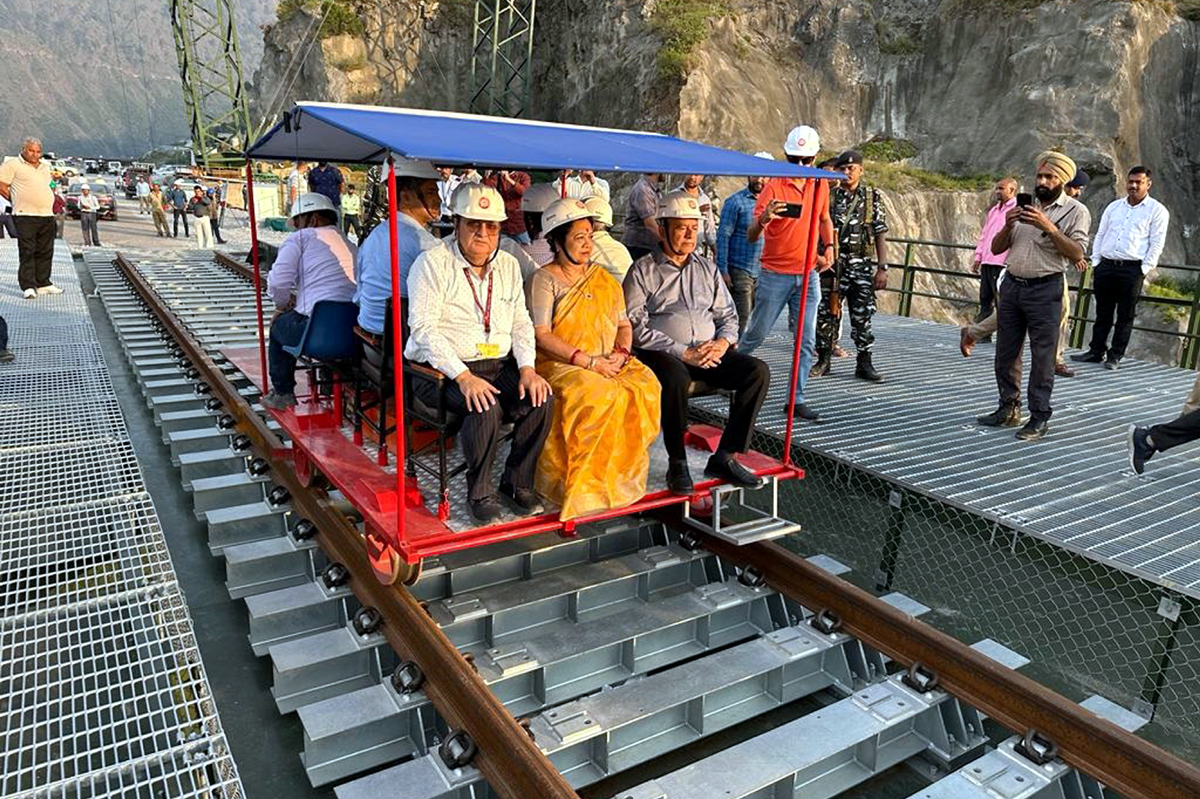
Excelsior Correspondent
JAMMU, Apr 25: The track linking work on the World’s highest, Chenab Railway Bridge in Reasi District, has been completed.
Union State Minister of Railways, Darshana Jardosh, who inspected the progress on the bridge in Reasi today, appreciated the completion of the track linking work in the record time. She was accompanied by SP Mahi, CAO, Udhampur-Srinagar Baramulla Railway Link (USBRL) and RK Hedge, ED, KRCL with team of Northern Railways and KRCL.
Briefing about the most challenging project of the world, SP Mahi, CAO, USBRL Project, told the Union State MOS that with a length of 1315 meters and a central arch span of 467 meters, the bridge is being constructed at a height of 359 meters above sea level, making it the tallest railway bridge on the planet. The bridge is designed to withstand a wind speed of 266 Kmph and bear earthquake forces of zone V.
He further said that out of the total 272 km USBRL project, 161 km of the Railway track has already been commissioned in three stages with first phase of 118 km Baramulla-Qazigund commissioned in 2009, second phase of 18 km Qazigund-Banihal in 2013, and 25 km Udhampur-Katra commissioned in 2014.
Pertinently, the bridge’s construction work was awarded to Chenab Bridge Project Undertaking (AFCONS-ULTRA-VSL JV), with AFCONS as the lead partner.
The bridge’s unique features include the use of a concrete-filled arch for the first time in India, power-operated cars for inspection and maintenance, a continuous health monitoring and warning system, and a cable crane assembly with a span of 915 meters, one of the longest in the world.
The construction of the Chenab Bridge required 28,660 metric tons of steel and more than 67,000 cubic meters of concrete, and a phased array ultrasonic testing machine was used for inspection of welds. Additionally, a National Accreditation Board for Laboratories (NABL) accredited lab has been set up at the site for testing welded elements, a first in Indian Railways.
The USBRL project, declared a “National Project” in 2002, is a 272 km-long railway project that will provide all-weather rail connectivity to the Kashmir Valley. The project has been completed in three phases, with the first phase commissioned in 2009, the second phase in 2013, and the third phase in 2014.

